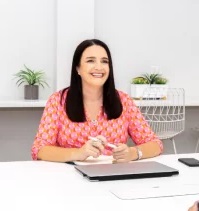
Why the Google search results page matters for SEO
Of all the billions of pages on the web (and there are at least 5.55 billion according to worldwidewebsize.com), the search engine results pages (SERPs) are the most important. …if you’re a website owner or digital marketer, that is.
These pages appear on Google and other search engines in response to a searcher’s query (which could be a word, a phrase or a string of characters) and competition is fierce for a prominent ranking. The results generally combine several different types of content depending on the type of search query and how the search engines believe provides the best answer. These include paid ads, organic text, images, videos, featured snippets, knowledge cards and ‘People also Ask’ boxes.
The SERPs take into account many different elements when deciding the rankings including organic results, paid searches, the device used for the search and the searcher’s location – and it’s vital for SEO specialists to keep abreast of technological developments in order to get (and keep) that all-important page one or page two ranking.
Why SERPS Are Important for SEO
But it’s a complex landscape and can seem a bit overwhelming, so you may find this article useful in unpacking the basics of the SERPs and why they’re important for SEO.
All of us searchers expect to find the answer to our query on our first search attempt, right? It’s the age of instant gratification and we don’t want to scroll through pages and pages of results or waste time on unnecessary click-throughs.
That means the search engines have an enormous job to do – millions of people all over the world rely on them 24/7 – and they keep changing their algorithms to keep their results authentic, accurate and relevant. Consequently, SEO specialists also have to be on the ball to keep pace with these ongoing technological developments and find ways for sites to climb the rankings.
Let’s Look at Some of the Numbers.
The top three Google search results for a keyword or phrase get 75.1% of all clicks with 53% of clicks going to the first five organic results. (Source: Backlinko)
And while the majority of search clicks are distributed across the first few results, the number one slot is the best place to be BY FAR with an average click-through-rate (CTR) of 31.7%. A top-ranked website is 10 times more likely to get a click than a webpage in 10th spot and if yours is on page two, less than one percent of Google searchers are likely to click on it.
On average, if you move up one spot, you can increase your CTR by around 30% but it really depends on where you’re moving from. There’s a huge drop-off in CTR from first to second place and going from number three to number two will see a big jump, but it’s pretty flat between numbers 6 – 10. In other words, you really want top five!
The numbers add up to clicks and traffic and it’s not rocket science working out that the more visits you have to your site, the better for business. By the same measure, the more effort you put into improving your SERP rankings, the greater the likelihood of success. And that’s why it’s so important to understand what’s behind the SERPs and why they’re important for SEO.
Naturally, most people assume that the top spots in the search results are the most relevant for their particular search query. It’s human nature to go with popular opinion, so when we see a number one ranked website, many of us assume that it’s the most popular because it’s the ‘best’.
But as website developers and SEO specialists all know, opinions and assumptions mean nothing in the competitive field of SERPs. It’s all about understanding what the SERPs are looking for (and importantly, knowing what they don’t want!) and working hard to fulfil those criteria.
Even though the results pages look a little different depending on your query (go on, do a couple of different searches and have a look at how they differ) – they are actually all comprised of the same three elements, namely paid advertisements, organic results and SERP features.
Paid Ads
Getting into the paid ads is simple. You just have to buy visits to your site rather than earn them organically. Paid ads (such as Google Ads) work on the basis of pay-per-click (PPC) which allows advertisers to bid on a keyword that is relevant to their business and then pay a fee every time someone clicks on one of those ads.
Organic Results
This is where SEO really comes in. Google has to work through all the various pages on the internet which contain the keywords being searched (and there can be thousands of them) to sort out which one/s provide the most relevant and the highest quality response.
These ranking factors take into account many different factors including backlinks, whether the pages are indexed appropriately and whether they are optimised for search.
SERP Features
The SERP features include things like Shopping Results, People Also Ask boxes, Featured Snippets, Top Stories and Videos and they show up in the search results, often providing answers to a query without the user having to click on a site to get a result. A page can appear in some of these features without having to pay – but it’s not always possible – and the key is to understand how they work and what data they use so you can look for opportunities to drive traffic.
There are plenty of things you can do to influence the SERPs – or at least attempt to entice them into ‘choosing’ your webpage so that you increase your chances of climbing the rankings and thereby boost traffic to your site.
And that’s why the SERPs matter to SEO and why it matters to have an experienced SEO specialist on your side. At first glance, SEO is complex, daunting and somewhat bewildering, but it is doable and this is one reason Why I Launched The SEO School.
Check out my new online, self-managed course, The SEO School, which takes you through all the key tools and techniques of a successful SEO strategy. The course is great for business owners, website managers and anyone who wants hands-on learning about all the essentials of SEO from an industry expert. Find out more about The SEO School here.
FREE Community
Are you frustrated customers can’t find your website?
Join my FREE online community for SEO tips!
seo Freebies
Are you the best kept secret on the internet?
It’s time to change all that with my DIY SEO freebies!
The SEO Course
Do you have a website that’s not performing? Learn SEO and put your website to work!
Other Blog Posts...
We talk about how technology and digital communications have literally put the whole world at our fingertips, but the reality is that we still love local. And that’s why we have to love local when it comes to SEO. Why does local SEO matter? Local SEO is important because the days of relying on a Yellow Pages
AI is on everyone’s lips. All the talk is about what AI can do and what it is going to be able to do. Some people even have it taking over the whole world, sending humans into a life of servitude to machines and computer systems. Should we fear the future? If you’re a content creator, here’s some good news. This
It’s no secret that SEO requires a multi-pronged approach in order to be effective. Some elements are simple and easy to implement while others require more technical expertise, but each one plays a role in great SEO. This article covers one of the most important elements of SEO…backlinks. Backlinks are links to
Want free SEO support?
Then join my Facebook community…

If you’re looking for a supportive online group that share the same mission – to get found online – then this community is for you!
From SEO updates and tips to Ask Me Anything Fridays, this is your space to pick-my-brains.








